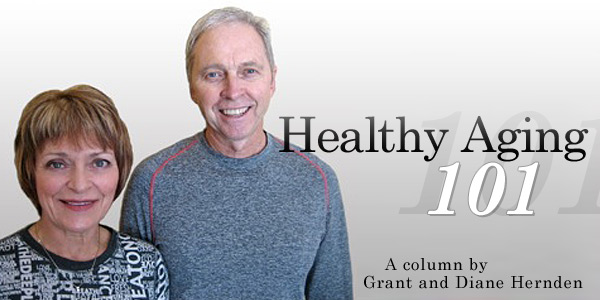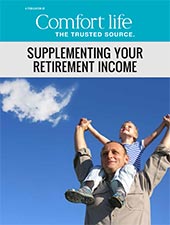In Pursuit of Good Health: An Annual Health Check Up For Boomers
In this 5-part series, we’ll explore potentially fatal health issues affecting men and women over 50.Most people think that genetics plays a large role in disease. And, the common treatment is to seek out a doctor, and most likely prescription drugs, to manage the symptoms of illness or disease instead of discovering why the symptoms occurred in the first place.

But did you know that genetics accounts for only 10 to 25% of any illness? That means that lifestyle factors account for 75 to 90% of illness. In fact, genes generally must be triggered by “something” for an illness, or disease, to manifest itself, and this “something” is largely dependent on the lifestyle choices you make.
What’s encouraging about this information is that you can be in control of your health. And, although the medical system is a necessary part of any health plan, staying out of it – requiring only minimal care when absolutely necessary – should be your ultimate goal. With drugs and surgeries carrying so many side effects and risks, introducing more healthy behaviours into your life is really the easiest way to pursue good health.
But, before we begin a review of diseases and illnesses to watch out for, there are two factors that have a wide-ranging affect on disease prevention: stress and obesity.
Stop Stressing – Your Life Depends On It
One of the worst triggers for disease is stress. If you’re a worrier (especially about coming down with an illness or disease), you must take action now. The good news is that taking positive action can have an immediate impact on your health and is really one of the best antidotes to stress. Here’s what you can do, starting today:

- Starting exercising. Walk every day and do 3 body weight exercises. For a weight-free workout, check out our Zoomers Hotel Workout we shot back in March 2009.
- Change 1 eating habit and do it consistently. For tips, check out our post: The New Rules for Eating Healthy
- Find ways to control the negative effects of stress in your life and practice them regularly. For ideas, check out our post: Spirituality, Stress And You’re Health. Or, try our relaxation techniques, part of our Deep Breathing Stretching Exercises.
The Truth About Obesity
A recent study published in the American Journal of Hypertension added to the growing body of evidence that shows that even weight gain in the 10 to 20 pounds range can lead to long-term health problems.
You are overweight if you have a BMI (Body Mass Index) of 25 to 29.9. You are obese if you have a BMI over 30. To calculate your BMI, try this BMI Calculator.
The health consequences of excess weight are well known. Being overweight or obese puts you at greater risk for getting type 2 diabetes, cardiovascular disease, high blood pressure, osteoarthritis, some cancers and gall-bladder disease. For example, those who are overweight increased their risk of high blood pressure and diabetes by 22%, while being obese causes this risk to be even higher. And, this doesn’t account for a host of psychosocial problems, having to limit your daily activities or being disabled by excess weight.
People tend to gain weight slowly over time. Gaining even 1 to 2 pounds a year eventually translates into obesity as people reach their 50s and beyond. The message is to be aware of any weight gain as soon as the scales start to creep up and take action to lose it. There are many proven strategies for weight loss including preserving lean muscle mass, eating to burn calories (instead of storing them as body fat) and taking control of the stress in your life.
And, that’s your introduction into our 5-Part “In Pursuit of Good Health” series.
COMING UP: Next week’s blog will continue with Part 1 of 5: In Pursuit of Good Health – Dementia and Alzheimers and how you can lower your risk to lead you to a healthy, active life.


